A US lawyer explains how Meghan Markle could successfully trademark the word 'archetypes' for her Spotify podcast
Meghan Markle has applied to trademark the 16th-century word she has chosen as the title for her upcoming podcast
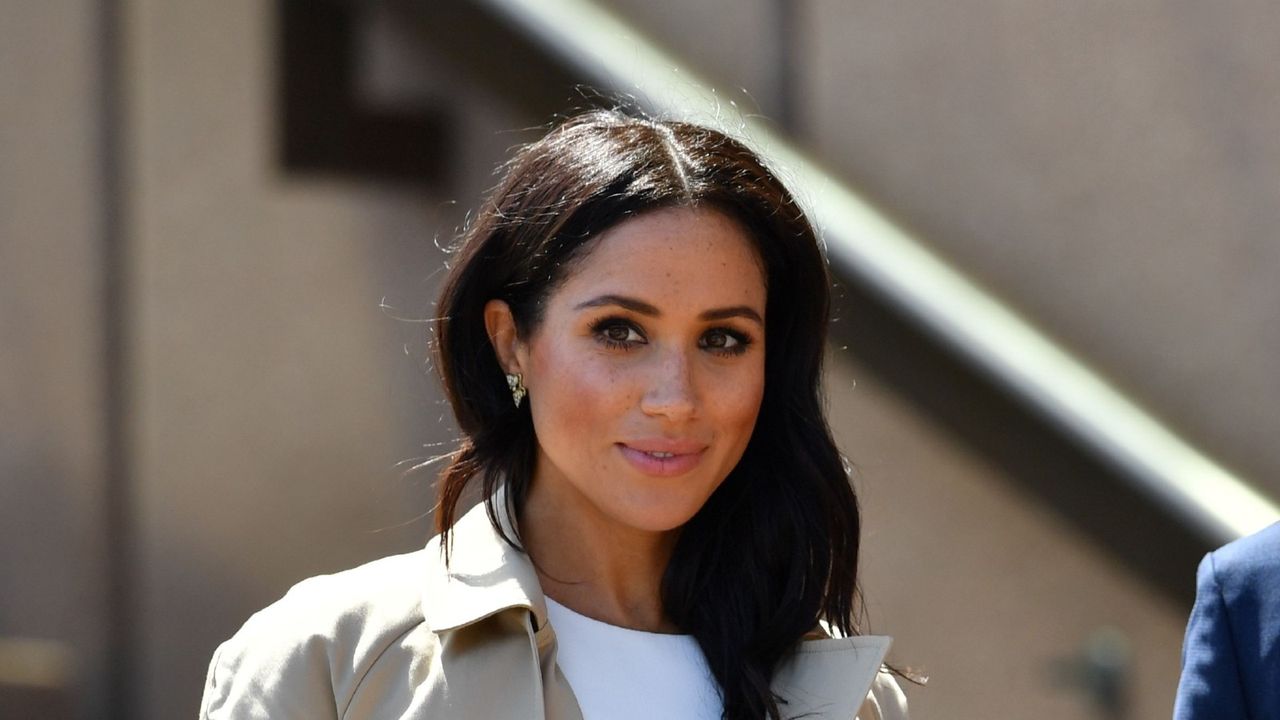

Meghan Markle has filed an application to trademark the word, 'Archetypes', after choosing it as the title for her upcoming Spotify podcast.
- Meghan Markle's application to trademark the name of her upcoming Spotify podcast could be granted—if she plays her cards right.
- The Duchess of Sussex announced the release of her podcast, Archetypes, last month, much to the excitement of royal fans.
- In other royal news, Royal Family challenges fans to find the Queen in 'Where's Wally?' style photo.
The Duchess of Sussex is hoping to trademark the title of her highly-anticipated Spotify podcast, Archetypes—and she just might be able to.
The news follows the recent announcement of Meghan Markle's podcast release date, after months of speculation over the royal's plans with the Swedish-American streaming service. Last month, the first teaser of her upcoming audio show, which will investigate the labels and stereotypes 'that try to hold women back', dropped online.
'Archetypes', launched under Prince Harry and Meghan Markle's Archewell Radio, will see the retired US actress host "uncensored conversations" with historians, experts, and influential women, in an attempt to investigate the labels and stereotypes "that try to hold women back" in our patriarchal society.
The word 'archetype' dates back to the mid 16th century, having first entered the English language in the 1540s. Defined in the dictionary as the 'original pattern from which copies are made', it is predominantly used to describe the typical characters in literature. The Hero, the Villain, and the Joker are just some examples of archetypes.
A spokesperson for the Sussexes said that the project had initially been delayed over concerns about Spotify’s role in spreading misinformation, particularly on the subject of Covid-19. Now "encouraged" by the platform's commitment to reviewing its "policies, practices, and strategies" to combat fake news, they have decided to move forward with the podcast.
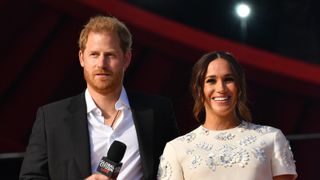
Will Meghan Markle be able to trademark 'archetypes'?
Archetypes may be a centuries-old word, but that doesn't mean Meghan won't be able to trademark it.
Sign up for the woman&home newsletter
Sign up to our free daily email for the latest royal and entertainment news, interesting opinion, expert advice on styling and beauty trends, and no-nonsense guides to the health and wellness questions you want answered.
It's understood that Spotify filed the application to the United States Patent and Trademark Office last month on behalf of the Duchess in Delaware, where she and Prince Harry have already set up 11 private companies.
If approved, the former Suits star would technically own the word whenever it is used "in the fields of cultural treatment of women and stereotypes facing women". This includes goods and services, including television shows and podcasts.
For Meghan to successfully trademark 'archetypes', she'll have to ensure it meets some important requirements.
US Trademark Registration Attorney & Brand Protection Specialist, John M. Hilla, of Noble Path Trademark Law, tells woman&home that "the mark must be unique enough to specifically identify its registrant, or owner, as the source of those specific goods or services with which it is identified in the marketplace."
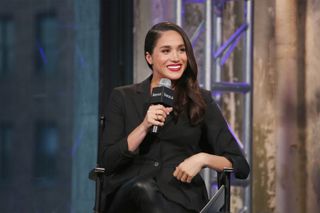
In Meghan's case, 'archetypes' scores relatively high on the unique scale or "spectrum of distinctiveness" used to measure a trademark's strength.
While the word technically already exists in the English language, it would be considered an 'arbitrary' mark as it has nothing to do with podcasting or discrimination against women. Like US tech giant Apple, its products and/or services would be completely unrelated to the original dictionary definition.
"It is a good, strong proposed trademark," says Hilla.
Meghan will also have to make sure that there are no other podcasts or similar products already called 'Archetypes' before she can trademark the word for her business.
Hilla explains that it "cannot be likely to confuse US consumer as to the source of goods or services, in relation to a prior registered trademark for the same or related goods or services."
And lastly, and perhaps most obviously, "the mark must be used (or intended to be used) in commerce across state lines."
If Meghan manages to demonstrate the above points, she shouldn't have any issues locking in her trademark.

Hailing from the lovely city of Dublin, Emma mainly covers the Royal Family and the entertainment world, as well as the occasional health and wellness feature. Always up for a good conversation, she has a passion for interviewing everyone from A-list celebrities to the local GP - or just about anyone who will chat to her, really.
Emma holds an MA in International Journalism from City, University of London, and a BA in English Literature from Trinity College Dublin.
-
 Cat Deeley's barely-there smokey eye shadow look is understated glamour at its finest
Cat Deeley's barely-there smokey eye shadow look is understated glamour at its finestHer cat-eye liner brings in the perfect amount of drama
By Charlie Elizabeth Culverhouse Published
-
 Courtney Cox’s Shark vacuum coaxed me away from a lifetime of Dyson loyalty — I’ve never had cleaner floor
Courtney Cox’s Shark vacuum coaxed me away from a lifetime of Dyson loyalty — I’ve never had cleaner floorI tested the Shark PowerDetect™ Clean & Empty Cordless Vacuum and haven't looked back since. It's easily the cleverest, most powerful vacuum I've ever tested.
By Laura Honey Published
-
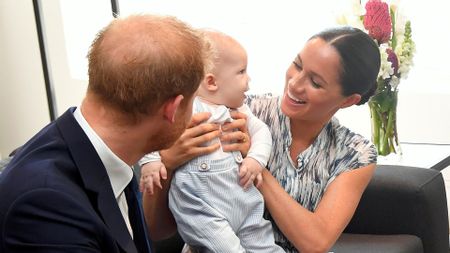 Prince Archie celebrated his fifth birthday with a 'party in the Californian sunshine'
Prince Archie celebrated his fifth birthday with a 'party in the Californian sunshine'Prince Archie marked his fifth birthday on May 6th - and is believed to have enjoyed a special party with Harry and Meghan
By Charlie Elizabeth Culverhouse Published
-
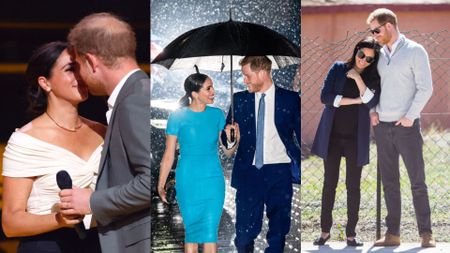 32 of Harry and Meghan's most romantic moments, from their engagement to their wedding day
32 of Harry and Meghan's most romantic moments, from their engagement to their wedding dayFrom their fairytale wedding to their first date, we've put together some of Meghan and Harry's most romantic moments...
By Elena Kiratzi Published
-
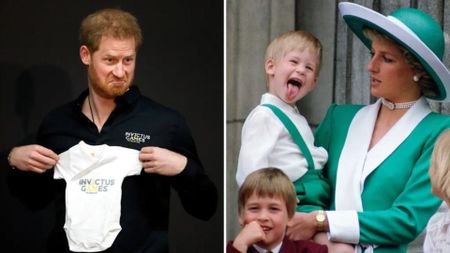 32 candid photos of Prince Harry that show his goofy side, from questionable dance moves to being the family joker
32 candid photos of Prince Harry that show his goofy side, from questionable dance moves to being the family jokerFrom a young age, Prince Harry has always found time to lighten the mood...
By Jack Slater Published
-
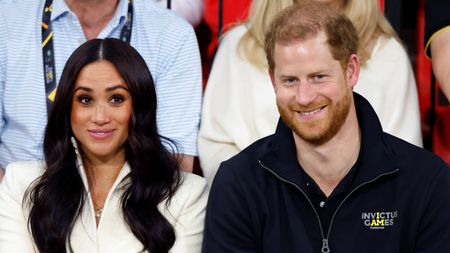 Prince Harry ‘adamant’ he wants Prince Archie and Lilibet to return to UK - but Meghan is ‘apprehensive’
Prince Harry ‘adamant’ he wants Prince Archie and Lilibet to return to UK - but Meghan is ‘apprehensive’Prince Harry is reportedly 'very keen' for Prince Archie, Lilibet and Meghan to join him and 'show a united front' on an upcoming UK trip
By Emma Shacklock Published
-
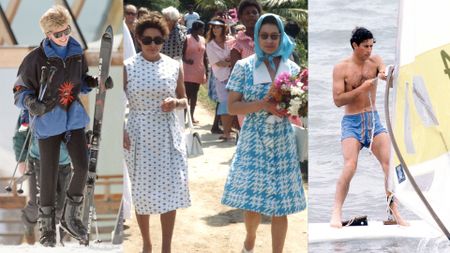 These are the royals' favourite holiday destinations, from the Bahamas to Botswana
These are the royals' favourite holiday destinations, from the Bahamas to BotswanaWant to know how the other half vacations? These are the royals' favourite holiday destinations...
By Lauren Clark Published
-
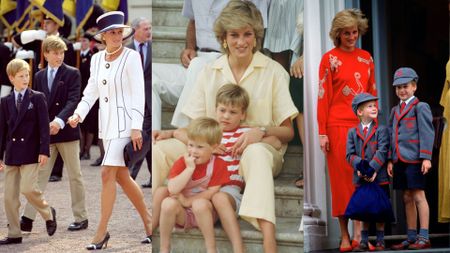 Princess Diana's cutest moments with Harry and William, from starting school to summer holidays
Princess Diana's cutest moments with Harry and William, from starting school to summer holidaysAll of Princess Diana's cutest moments with Harry and William rounded up...
By Lauren Clark Published
-
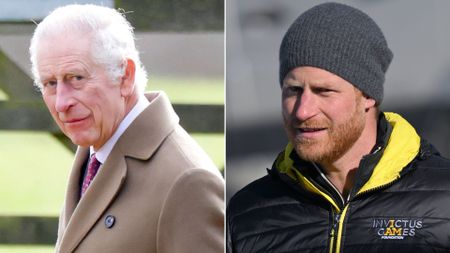 Prince Harry breaks silence on King Charles's cancer diagnosis after UK visit
Prince Harry breaks silence on King Charles's cancer diagnosis after UK visitPrince Harry has spoken out about his reunion with King Charles in London and he's planning to 'stop in' and see family 'as much as' he can
By Emma Shacklock Published
-
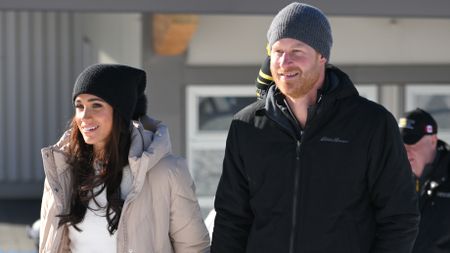 Meghan and Prince Harry declare 'we will not be broken' despite 'criticism and challenges'
Meghan and Prince Harry declare 'we will not be broken' despite 'criticism and challenges'Meghan Markle and Prince Harry's representative has spoken out during the couple's visit to Canada to send a powerful message
By Emma Shacklock Published